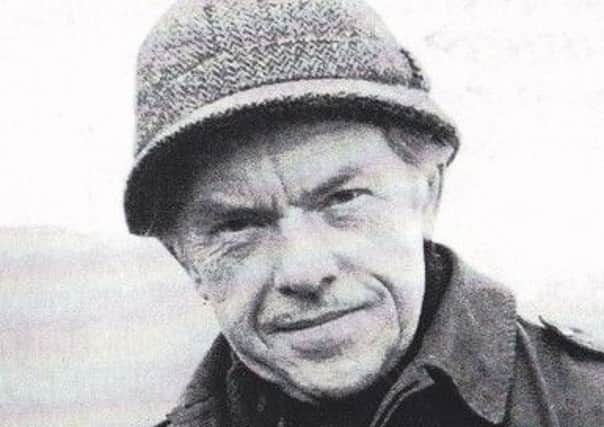Obituary: Robert Trotter, actor, director and photographer


Robert Trotter, who has died aged 83, was a talented actor and director who started out with his home town amateur drama company and went on to become a national television soap opera personality.
Although his stage debut was with Dumbarton People’s Theatre in the Tin Hall in the town’s Glasgow Road, where he made lifelong friendships, he spent much of his career in much larger theatres throughout the UK and on television, before proving an able photographer in later life.
Advertisement
Hide AdAdvertisement
Hide AdHe will be remembered by many for his performance as Mr Obadiah Murdoch in Scottish Television’s Take the High Road soap opera, which was filmed in the scenic village of Luss on Loch Lomondside, but his career was far more committed and extended than this somewhat comic role might suggest.
His life as an actor began in the 1950s in the Green Room Club which metamorphosed into Dumbarton People’s Theatre, where he was joined by the likes of director Vera McIntyre, actors Jessie Brazier, Ronnie Armstrong, Burns Shearer, Joe Donnelly and Tom Gallacher, the author, playwright and essayist.
Trotter graduated from the University of Glasgow and completed his national service as a coder in the Royal Navy before training as a teacher.
He taught English at Bellahouston Academy in Glasgow, and in 1965 he became a lecturer in drama at his Glasgow University alma mater and took up residence in the West End of the city.
While doing so he found time to act in and direct productions for the prestigious Glasgow University Arts Theatre Group, of which he was a co-founder. His work attracted excellent reviews from discerning Scottish theatre critics such as Christopher Small, and his friend, Eric MacDonald, the Glasgow-born playwright and fiction writer, said this may have encouraged him to devote himself to theatre and radio acting.
MacDonald added: “The latter both here, and in London, allowed him to fulfil his talents, particularly his insightful characterisation, his timing and his honest feeling. The actress Edith Macarthur once summed up his gifts in a single word – ‘stunning’.”
Moving to London, he continued to work for the BBC, and played at the King’s Head Theatre Club and the Royal Court, in plays by his old friend, Tom Gallacher, who wrote Mr Joyce Is Leaving Paris.
He was ever aware of Scottish writers, promoting, directing or playing in their works – including those of Joan Ure, Hector MacMillan, Eric MacDonald and Alasdair Gray.
Advertisement
Hide AdAdvertisement
Hide AdHe returned from London on being offered the posts of assistant director at Dundee Rep and a directorship at Pitlochry Festival Theatre, where he was happy to direct as a freelance and where he again gave great encouragement to Scottish actors and writers.
In 1982, his production of Peter Turrini’s Josef and Maria, with Kay Gallie and John Shedden in the leads, was the first play to open the main house of the Tron Theatre in Glasgow.
He loved his home town of Dumbarton, its gossip, news and social history and its people, with whom he mixed freely and was comfortable. He enjoyed entertaining them and listening to their reaction to the work he was involved in.
Ever restless and creative, he turned his attention in later life from acting and directing to another intense interest, photography.
A trip to New York in the 1990s was one of discovery, and he was to return there again and again, armed with cameras and fascinated by the similarities he found there with the energy and pace of life in Glasgow.
This resulted in Sing the City, published in 2001, which was a book of his own black and white photographs, a haunting collection that led to an exhibition three years later at the Glasgow School of Art.
Sadly, his eyesight was quickly failing him and in recent years many of the projects he hoped to carry out could not be met.
Frail at the end, yet still strong in spirit, he left much of his work to the Glasgow School of Art Archive and more is to be found within the Scottish National Photography Collection held within the Scottish National Portrait Gallery in Edinburgh.
Robert Trotter was a multi-talented man and fiercely proud Scot and all who knew him were proud of his friendship and grateful for his legacy.
BILL HEANEY